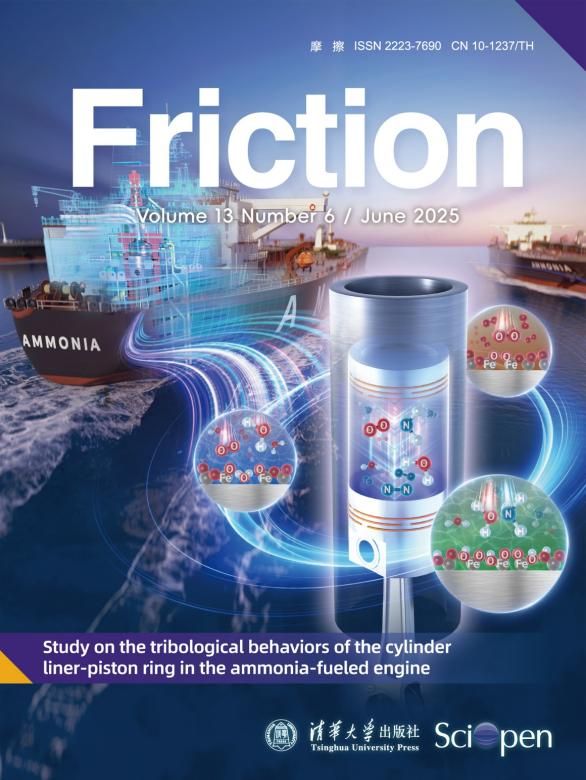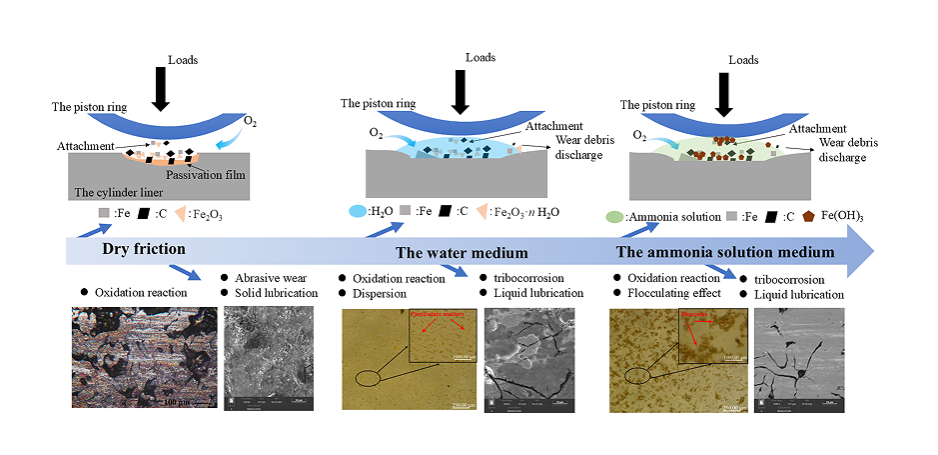A research team from the Tribology Research Center for Marine Equipment at the College of Power and Energy Engineering, in collaboration with the Lanzhou Institute of Chemical Physics (Chinese Academy of Sciences) and the Shandong Laboratory for Advanced Materials and Green Manufacturing in Yantai, has published their latest study in the esteemed international journal Friction. The paper, titled “Study on the Tribological Behaviors of the Cylinder Liner–Piston Ring in the Ammonia-Fueled Engine,” was featured as the cover article.
XU Xing, a Ph.D. student at the College of Power and Energy Engineering, is the lead author of the paper. Associate Professor MA Xuan serves as the corresponding author, with Associate Researcher GUO Rui from the Lanzhou Institute of Chemical Physics as the co-corresponding author. Co-authors include Professor LU Xiqun from Harbin Engineering University and Researcher WANG Xiaolong from the Lanzhou Institute of Chemical Physics. Harbin Engineering University is listed as the first affiliation.

The study focuses on friction and lubrication design, which are vital for achieving high power density and reliability in engines. These factors are integral to engine lifespan, efficiency, and emissions. The increasing adoption of low- and zero-carbon fuels, particularly ammonia, is reshaping tribological performance in engines. Unlike traditional fuels, which operate in acidic or neutral environments, ammonia introduces a unique alkaline environment that presents significant challenges. These include corrosion-wear coupling failures in friction pairs and accelerated degradation of lubricants.

To address the complex operating conditions and unclear mechanisms of cylinder liner–piston ring assemblies in ammonia-fueled engines, the research team developed a multi-level decoupling strategy. This approach thoroughly examined the dynamic responses of friction coefficients, wear product formation, and interface failure mechanisms under ammonia fuel conditions. The study offers valuable theoretical insights to enhance lubrication efficiency and optimize durability in ammonia-powered engines.
Friction is an internationally recognized journal in the field of tribology, hosted by Tsinghua University. Ranked in the top quartile (Q1) by both the Chinese Academy of Sciences and Journal Citation Reports (JCR), it is considered one of the leading publications in engineering and technology. In 2024, the journal was selected as a key publication in the second phase of the “China Science and Technology Journal Excellence Action Plan.”
Paper link:https://www.sciopen.com/article/10.26599/FRICT.2025.9440974
